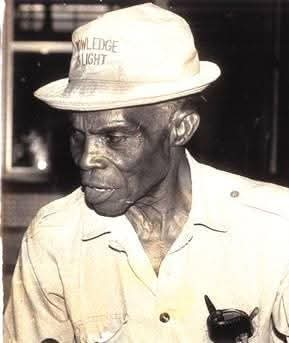
Augustus Taiwo Solarin, widely known as Tai Solarin, remains one of Nigeria’s most enduring symbols of intellectual honesty, civic defiance, and educational transformation. Revered for his principled stand on secularism, civic responsibility, and good governance, Solarin carved a distinct path in the nation’s history as a reformer who rejected privilege in favor of public service.
Born on August 20, 1922, in Ikenne, Solarin’s early years were shaped by colonial missionary schooling and military service in the British Royal Air Force during World War II. His post-war education at the University of Manchester in the United Kingdom equipped him with radical views that would later challenge Nigeria’s religious orthodoxy, elitist traditions, and authoritarian leadership.
In 1956, Solarin founded the Mayflower School, Nigeria’s first secular secondary institution. Rejecting the prevailing missionary model of education, he envisioned a learning environment that promoted critical thinking, self-reliance, and civic duty. The school became a beacon of progressive thought and national consciousness, grounded in Solarin’s philosophy of rational living, moral uprightness, and patriotism without religiosity.
Beyond the classroom, Solarin emerged as one of Nigeria’s boldest social critics. Through his widely-read newspaper columns and essays, he took aim at corruption, military rule, and societal hypocrisy. His 1975 essay, The Beginning of the End, sharply condemned General Yakubu Gowon’s failure to return Nigeria to civilian rule—a move that led to Solarin’s imprisonment but amplified his reputation as a fearless defender of truth.
Unapologetically unconventional, Solarin adopted a lifestyle that symbolized his rejection of elitism—often spotted in shorts, simple shirts, and sneakers, even during official functions. He called himself a humanist, championing morality without religious doctrine and dedicating his life to causes such as prison reform, education equity, and democratic governance.
In 2005, his legacy was immortalized with the establishment of the Tai Solarin University of Education (TASUED) in Ogun State, Nigeria’s first university of education. The institution continues to reflect the values Solarin embodied—integrity, social justice, and intellectual courage.
Tai Solarin died on July 27, 1994, but his influence endures. More than three decades after his passing, his writings, teachings, and example remain touchstones for educators, activists, and reformers.
In an age marked by opportunism and silence in the face of power, Tai Solarin’s life is a call to conscience. He did not merely question authority—he redefined what it means to serve the public with humility, clarity, and unwavering moral strength.











